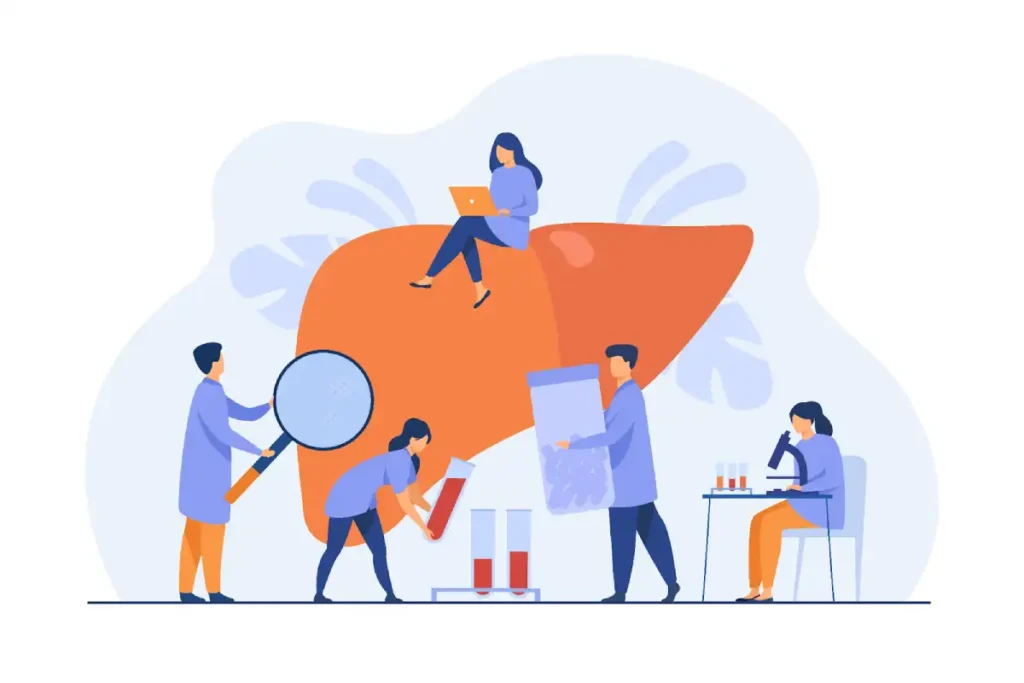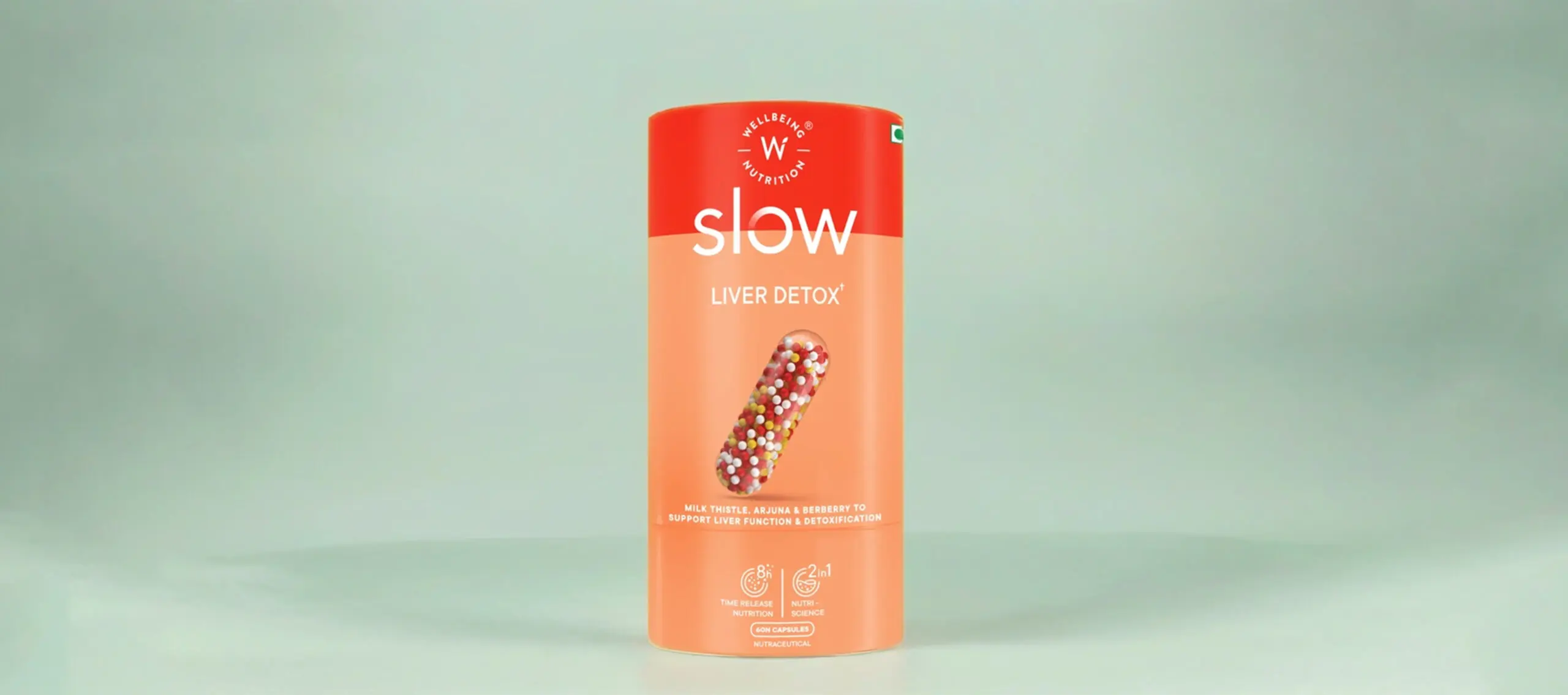Is Your Lifestyle Fueling India’s Next Health Crisis?

The liver is truly one of our body’s unsung heroes, working tirelessly behind the scenes to detoxify, regulate hormones, and keep our energy balanced. However, liver cancer is quietly rising as a significant health threat, largely driven by modern lifestyle choices rather than genetics or infections.
From Fatty Liver to Cancer: How It Develops

Liver cancer doesn’t develop overnight. It often starts as fatty liver disease (NAFLD/MAFLD). Imagine excess fat accumulating in your liver because of poor diet, lack of exercise, obesity, and stress. If ignored, this condition can progress to more severe stages:
~ Fibrosis : scarring of the liver tissue
~ Cirrhosis : irreversible liver damage
~ Hepatocellular carcinoma : the most common form of liver cancer
The worrying part? This entire process happens silently, with no obvious symptoms in the early stages.
🧪 1 in 3 Indians has fatty liver, that can progress to fibrosis, raising liver cancer risk 3–4 times, especially in those with diabetes.2,7
Foods That Love Your Liver3
While no single food can “cure” liver disease, certain nutrient-dense foods help reduce fat buildup, support detox enzymes, and protect liver cells:
~ Cruciferous vegetables (broccoli, cauliflower, kale) : enhance detoxification.
~ Garlic and onions : contain protective sulfur compounds.
~ Turmeric : curcumin helps reduce inflammation and oxidative stress.
~ Beetroot : improves blood flow and supports liver enzyme activity.
~ Flaxseeds, chia seeds, walnuts : rich in omega-3s that fight inflammation.
~ Black coffee (without sugar) : may lower the risk of liver cancer, according to various studies.
🧪 Coffee drinkers have lower liver cancer risk, studies show 2–3 cups daily can cut risk by up to 40 percent6
NOTE : Avoid coffee after 4 pm for good sleep. Also, coffee shouldn’t be loaded with sugary additives.
Lifestyle Tips for Lifelong Liver Health
~ Maintain a healthy weight : A modest 5–10% reduction can reverse fatty liver.
~ Cut back on sugar & processed foods : To ease liver fat accumulation.
~ Walk after meals : Improves insulin sensitivity and reduces fat storage.
~ Stay hydrated : Water is key for flushing out toxins.
~ Sleep : Aim for 7-8 hours to support liver repair.
~ Stress management : Chronic stress increases cortisol, which worsens inflammation.
🧪 A 12-week Mediterranean-style time-restricted diet significantly reduced liver fat in MAFLD patients.5
Yoga & Ayurveda for Liver Strength
Yoga postures that stimulate digestion and circulation around the liver can be powerful allies:
~ Ardha Matsyendrasana (Half Spinal Twist) : improves digestion and detoxification.
~ Bhujangasana (Cobra Pose) : enhances blood flow to abdominal organs.
~ Dhanurasana (Bow Pose) : strengthens core and improves liver function.
Ayurvedic practices include:
~ Triphala : supports gentle cleanse and digestion.
~ Guduchi (Giloy) : known for its hepatoprotective properties.
~ Neem : purifying and anti-inflammatory.
(Always consult a practitioner before starting any herbal routine.)
🧪 Studies show yoga improves liver function in NAFLD within 3 months, while Ayurvedic herbs like Guduchi lower key enzymes and support regeneration.8,9
The Truth About Liver Supplements
While there’s a plethora of liver supplements available, it’s wise to approach these with care. Ingredients like milk thistle and turmeric can provide some support, but they shouldn’t replace essential lifestyle changes or professional medical advice.
🧪 Supplements may support, but lifestyle changes are far more effective4
Always consult your healthcare professional before making any additions.
Pink Tiger Verified: A Cleaner, Safer Option
If your healthcare professional advises supplementation, choose wisely. In a world of unregulated supplements, pick those that are third-party tested and free from harmful additives. This way, you can support your liver health with confidence.
Final Takeaway
Your liver is incredibly resilient, but it thrives on care. By embracing a nutrient-rich diet, staying active, managing stress, practicing yoga, and selecting safe supplements, you can significantly reduce your risk of liver cancer and ensure optimal liver function for years to come.
The best prevention? Consistency. Small, daily steps make the biggest difference in protecting your liver health.
To know more Check out our Instagram Post Here
Disclaimer : This content is for informational purposes only and is not a substitute for professional medical advice, diagnosis, or treatment. Always consult a qualified healthcare provider for any questions or concerns regarding your health.
References :
- 1. Shalimar, N., Elhence, A., Bansal, B., Gupta, H., Anand, A., Singh, T. P., & Goel, A. (2021). Prevalence of non-alcoholic fatty liver disease in India: a systematic review and meta-analysis. Journal of Clinical and Experimental Hepatology, 12(3), 818–829. https://doi.org/10.1016/j.jceh.2021.11.010
2. Rangachari, Balamurali; Murugesan, Manimaran; Shanmugam, Chitra; Gopalsamy, Sathya; Chinnadurai, Krishna Kumar. Indian Literature Review on Nonalcoholic Fatty Liver Disease. Gastroenterology, Hepatology and Endoscopy Practice 4(1):p 10-16, Jan–Mar 2024. | DOI: 10.4103/ghep.ghep_23_23
3. Bhargava, B., Rao, P.N., Kulkarni, A.V. et al. Prevalence of metabolic dysfunction-associated fatty liver disease among information technology employees in India. Sci Rep 15, 10124 (2025). https://doi.org/10.1038/s41598-025-91482-2
4. Hadefi, A., Arvanitakis, M., Trépo, E., & Zelber‐Sagi, S. (2023). Dietary strategies in non‐alcoholic fatty liver disease patients: From evidence to daily clinical practice, a systematic review. United European Gastroenterology Journal, 11(7), 663–689. https://doi.org/10.1002/ueg2.12443
5. Tsitsou, S., Bali, T., Adamantou, M., Saridaki, A., Poulia, K., Karagiannakis, D. S., Papakonstantinou, E., & Cholongitas, E. (2025). Effects of a 12‐Week Mediterranean‐Type Time‐Restricted Feeding Protocol in patients with Metabolic Dysfunction‐Associated Steatotic Liver Disease: A Randomised Controlled Trial—The ‘CHRONO‐NAFLD Project.’ Alimentary Pharmacology & Therapeutics. https://doi.org/10.1111/apt.70044
6. Kennedy OJ, Roderick P, Buchanan R, et alCoffee, including caffeinated and decaffeinated coffee, and the risk of hepatocellular carcinoma: a systematic review and dose–response meta-analysisBMJ Open 2017;7:e013739. doi: 10.1136/bmjopen-2016-013739
7. T. (2025, June 30). ‘Liver Fibrosis Raises Risk of Cancer by 3-4 Times.’ The Times of India. https://timesofindia.indiatimes.com/city/lucknow/liver-fibrosis-raises-risk-of-cancer-by-3-4-times/articleshow/122167744.cms
8. Balkrishna, A., Kumar, A., Rohela, A., Arya, V., Gautam, A. K., Sharma, H., Rai, P., Kumari, A., & Amarowicz, R. (2024). Traditional uses, hepatoprotective potential, and phytopharmacology of Tinospora cordifolia: a narrative review. Journal of Pharmacy and Pharmacology, 76(3), 183–200. https://doi.org/10.1093/jpp/rgae013
9. View of Development and validation of a yoga module for adults with non-alcoholic fatty liver disease: a feasibility study. (n.d.). https://www.ijcmph.com/index.php/ijcmph/article/view/14406/8546
